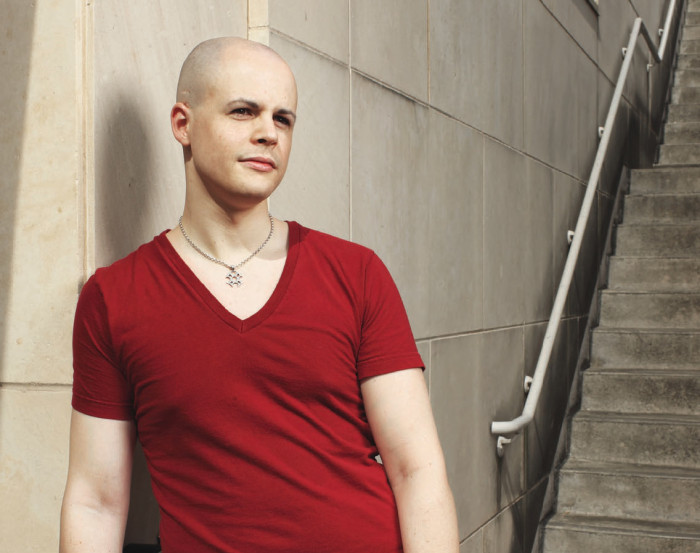“I arrived at UT as a homophobic gay male.”
That’s how Jake Gonzales recalls the start of his freshman year in Austin. Though he knew he was gay, he says he was unable to identify with other gay individuals and didn’t feel that he belonged in any group.
But the four years Gonzales spent at UT provided him with far more than a degree – it gave him an education in activism and community organizing and made him not only comfortable with his sexuality, but a champion of LGBT causes.
A big part of that transformation was UT’s Gender and Sexuality Center. Opened in 2004, a year after Gonzales’ arrival on campus, the center was designed as a safe harbor for women and LGBT students, a place they could congregate and learn, organize and thrive.
Far from a new concept, similar centers serving LGBT students have been on university campuses all over the country for years. But it had taken a group of dedicated students eight years to realize their goal of getting one at UT. Though the university has a long history of gay and lesbian organizations, few had stood the test of time, often suffering from a loss of institutional memory once certain students graduated. The GSC provided that necessary baseline, serving as a portal to organizations and events and connecting people across the immense campus.
For Gonzales, the GSC – which first opened in a small, closet-like space tucked away in the Student Services Building – was a lifesaver.
“There was enough space for three desks and a few book- shelves – not the kind of place that screamed ‘come hang out here!’” says Gonzales. “But I remember being really excited to finally have this space after a year of being on campus without it.”
He credits director Ana Ixchel Rosal with creating a culture of acceptance, education and support from the very beginning. “She was like having a really good professor to talk to,” he says. “She was there for us whatever we needed, always encouraging us.”
Through the GSC, Gonzales discovered a love for activism and community organizing. Up until just a few years ago, all of the gay and lesbian groups at UT were social in nature and steered clear of activism. Gonzales was one of several students who started Stand Out, a queer political organization that spoke out on controversial issues such as legalizing gay marriage. “That was my first foray into queer activism,” he says.
Would Stand Out have been possible without the existence of the Gender and Sexuality Center? “I think it would have been possible, but not nearly as successful. The center is the hub of queer life on campus and it helps organize students in a way that just wasn’t possible before.”
Gonzales went on to become public relations director of UT’s Queer Students Alliance, an agency of student govern- ment representing the interests of the university’s LGBT popu- lation. In the fall of 2006, the alliance released its state of af- fairs report, a watershed document that used survey responses from LGBT students to illustrate the positives and negatives of their campus life. The report included 70 recommendations to the university on ways to make UT a more welcoming place for LGBT individuals.
Gonzales says university President William Powers embraced the report. Since then a number of the recommendations have been adopted, such as adding sexual orientation to the university’s non-discrimination policy and providing gen- der-neutral restrooms in new campus facilities.
“What was once an unseen minority is now much more visible,” says Gonzales. “Now we have a dialogue, and a more intimate understanding of where people are coming from.”
Gonzales graduated from UT with a bachelor’s degree in radio, television and film and two minors in business and communication studies. But in reality, he says, his UT education happened largely outside of the classroom. “I spent all of my time doing community organizing,” he says. “I tried my best to leave the campus better than I found it.”
Today, Gonzales splits his time between the Austin Gay and Lesbian Film Festival, where he serves as programs director, and operating his public relations firm Guess Who? Productions, which focuses on nonprofits and small businesses. He just recently stepped down as chair of the Gender and Sexuality Center’s advisory working group, which advises the center’s staff, helps set direction and assists with tasks like producing programs and writing grants. But he remains involved in the organization.
Asked what his hope is for today’s incoming UT gay freshman, Gonzales takes a moment to reflect before responding. “For many kids it’s their first chance to be loved and honored for who they really are,” he says. “My hope for that person is that he at least steps through the door of the center. It does us no good to have a center if that person doesn’t walk in the door. I would tell him he doesn’t have to be a hardcore student activist to be involved. There are movie nights, potlucks – many low stakes, high emotional return activities that happen. You just have to open yourself up to it.
“I learned a lot as a student at UT,” Gonzales adds. “Would I have learned as much without the GSC there for support? Probably not. I really don’t want to imagine my life at UT without the GSC.”




































